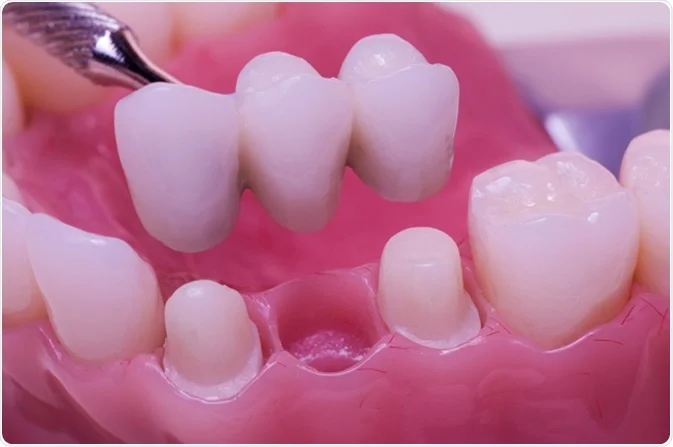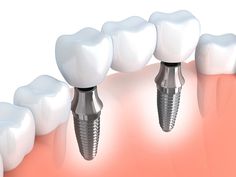Treatments of Dental Bridges and Cost Estimate Your Way to Success
- Nataliya Ann
- Oct 14, 2022
- 4 min read
What Is the Cost of Dental Bridges?
Dentures are more expensive than dental bridges, but they tend to be more comfortable. Because bridges can help restore the health of your remaining natural teeth, they are also an investment in your oral health. Depending on your requirements, Ingersoll Dental offers bridges on a private, NHS, or Ingersoll Dental Essentials basis. The precise dental bridge cost varies, but typically range between £100 and £150, depending on the bridge's location and materials. Before you begin treatment, our Ingersoll Dental staff will discuss your options with you and provide you with an accurate price.
What Is a Dental Bridge?
Dental bridges are devices that close a gap in your mouth. It involves attaching a false tooth to the remaining natural teeth on either side of the missing tooth. London dental bridges are divided into two main categories. The most common type involves placing a false tooth or teeth in the middle of two porcelain or metal crowns that are permanently bonded to your natural teeth on either side of the gap.
An adhesive bridge may be an option for you if the teeth on either side of your missing teeth are healthy and strong. A false tooth with "wings" on either side is called an adhesive bridge. The supporting teeth' inner surfaces are bonded to these wings. Because of this, there is no need to prepare the adjacent teeth for crowns with full coverage.
What Advantages Do Dental Bridges Offer?
Dental bridges are a long-term option for replacing missing teeth. Bridges can replace missing teeth without requiring surgery, in contrast to dental implants. Additionally, with porcelain finishes available, your new tooth may almost match the natural teeth that surround it.
A London dental bridge can help you eat and talk more easily while also giving you more confidence in your smile. Additionally, replacing a tooth can help safeguard your remaining teeth. The way you bite is affected when you have gaps because the remaining teeth may lean over or move into the gap. Additionally, food can get stuck in small spaces, increasing your risk of tooth decay. Dental bridges are an investment in your oral health, confidence, and quality of life.
What Alternatives to Dental Bridges Are Available?
There are multiple ways of supplanting missing teeth. It's important to look into all of your options and talk to your dentist about them. Bridge alternatives include:
False teeth can be replaced with full or partial dentures, which are removable frameworks made of plastic or metal to which false teeth are attached. False teeth can also be replaced with dental implants, which consist of a crown made of porcelain that is attached to a titanium implant that is inserted directly into your jawbone.
Your dental bridge consultation can help you decide which option is best for you.
On the NHS, dentures and bridges are only offered if it is determined that tooth replacement is clinically necessary; However, private treatment is typically the only option for dental implants.
Resin-Bonded Bridge Resin-bonded bridges function and feel like natural teeth and are similar to dental bridges. The only difference is that, unlike dental bridges, the false tooth will be attached using resin rather than adjacent teeth. To secure the false tooth in place, the resin is positioned behind the teeth. If necessary, this less invasive procedure can be reversed.
The Flipper is a temporary partial denture that is attached to the sides of the tooth that is missing. It has a natural appearance. It prevents adjacent teeth from drifting and relies on the mouth's palate or roof's suction. In addition, it is simple to wear and does not require any metal clasps. Flippers are a less expensive option, but they are not a long-term solution.
How Are Dental Bridges Put in Place?
Your dentist will take an impression of your mouth to make the bridge. To ensure that the bridge fits your mouth as closely as possible, a plaster mold of your teeth and gums needs to be made. Your dentist will also choose the shade of your bridge to match your natural teeth at this point.
After that, a specialized lab technician makes the bridge according to the dentist's instructions. While you wait for your custom bridge, your dentist can fit a temporary solution like a plastic bridge or crown.
Your new bridge will be fitted by your dentist when it is finished. Before the procedure begins, you will receive a local anesthetic injection that will numb any pain in your gums. However, you will remain awake throughout the procedure. By ensuring that you bite correctly while wearing the bridge, your dentist will ensure that the fit is comfortable.
Following the Installation of Your Bridge
you may experience some gum soreness or mild sensitivity to hot and cold foods and beverages. Because it is replacing the missing tooth, it may also feel a little strange. Nevertheless, these issues ought to subside within a few days. When you bite together, new teeth might occasionally feel a little high. During follow-up appointments, your dental bridges consultation can make adjustments to fix minor issues like this one.
Bridges cannot be removed for cleaning because they are permanently fixed in place. You must use a special dental floss to clean the space under a bridge to maintain the health of your natural teeth. You will be shown how to floss under your bridge by your dentist or hygienist. A bridge can last for many years if it is well-maintained.
To learn more about bridges, contact the Ingersoll Dental office closest to you. Your options will be gladly discussed with you by our dental professionals.





Comments